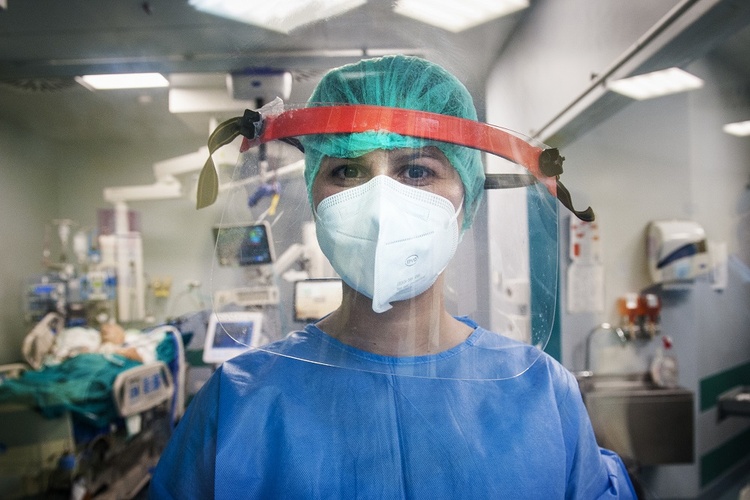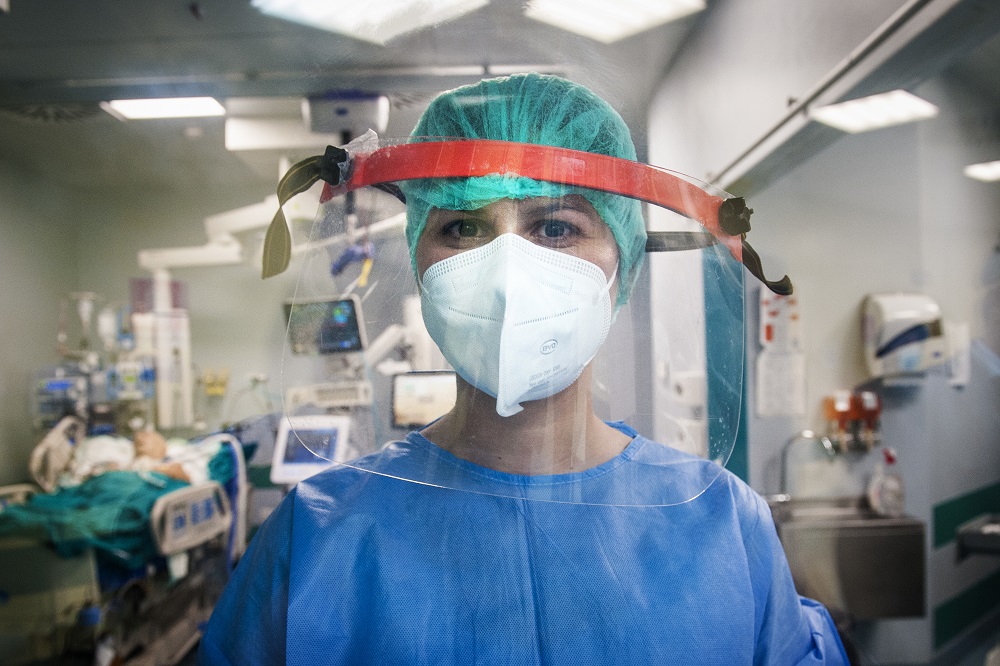Despite early studies showing a lower risk of severe disease or hospitalisation from Omicron compared to the previously-dominant Delta variant, healthcare networks across Spain, Britain, Italy and beyond have found themselves in increasingly desperate circumstances.
On Friday, Britain began deploying military personnel to support hospitals experiencing staff shortages and extreme pressures due to record COVID-19 cases in the country.
“Omicron means more patients to treat and fewer staff to treat them,” National Health Service (NHS) Medical Director Professor Stephen Powis said in a statement.
Spain’s primary healthcare network is so strained that on the penultimate day of 2021 authorities in the northeastern region of Aragon authorised the reincorporation of retired medical workers and nurses.
“The exponential increase in cases means primary care can perform neither their contact tracing and vaccination campaign duties adequately, nor their ordinary activities,” the authorities said in a statement.
Front-line workers such as nurses and physiotherapists are the hardest hit, Spanish nursing union SATSE said.
In the Netherlands, infection rates are also rising sharply among hospital staff, particularly nurses and nursing assistants, Dutch daily De Telegraaf reported on Friday, following a survey of eight major hospitals.
In the worst cases, one in four tested positive in the run-up to Christmas, as in Amsterdam’s University Medical Centre where 25 per cent of staff are now testing positive, compared to 5 per cent a week ago.
Dutch hospitals are mulling changing their quarantine rules so infected staff who do not have symptoms can come to work, De Telegraaf said, as Dutch daily case numbers break records despite a strict lockdown since December 19.
In Italy, the problem of infected health workers - more than 12,800 according to data gathered last week - is being compounded by the suspension of doctors, nurses, and administrative staff who are not vaccinated and represent just over 4 per cent of the total workforce.
In a last-ditch bid to plug gaps in the service, Italian health agencies are freezing staff holidays, deferring them to other periods, and freezing or postponing scheduled surgeries not classified as “urgent”.
With hospitalisations already at their highest since last February, the NHS is likely to be stretched even thinner as COVID-19 surges amongst older people, UK Health Minister Sajid Javid said on Friday.
“We are still seeing rising hospitalisations, particularly with the case rate rising in older age groups,” Javid said in a broadcast clip.
“That is of concern.
“I think we have to be honest...when we look at the NHS, it will be a rocky few weeks ahead.”
An average of around 80,000 medical staff were absent from work every day in the week to January 2 - the most recent period for which data is available - a 13 per cent rise on the previous week, according to NHS England.
Almost half of those absences, or 44 per cent, were due to COVID-19, a rise of more than fifth from the week earlier.
Rafael Bengoa, co-founder of Bilbao’s Institute for Health and Strategy and a former senior WHO official, said Spain had failed to take sufficient measures to reinforce vital services and pressure would continue to ratchet up for several weeks.
“Spain has several weeks - basically all of January - of rising cases...then hopefully we’ll hit a plateau that goes down just as fast,” he told Reuters.
Bengoa considers it unlikely that a more infectious variant which is also more deadly than Omicron will appear and is optimistic the current wave might signal the beginning of the pandemic’s end.
“Pandemics don’t end with a huge boom but with small waves because so many have been infected or vaccinated,” he said.
“After Omicron we shouldn’t have to be concerned with anything more than small waves.”
- AAP











